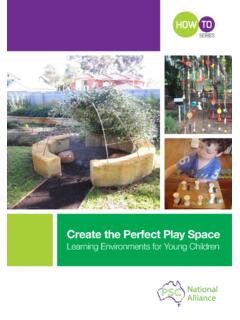Transcription of PARENTING WORKBOOK Building Skill - JCJC
1 PARENTINGWORKBOOKS killBuildingRespect in the HomeA project of the Family Involvement Committeeof the Pennsylvania Council of Chief Juvenile Probation Officersand the Juvenile Court Judges Commission Juvenile Justice System Enhancement StrategyFamily Name: _____ R E S P E C TThe preparation of this document was supported by sub-grants (2013/15-J-02-27488 and 2015/16/17-J-04-28369) awarded to the Pennsylvania Council of Chief Juvenile Probation Officers from the Pennsylvania Commission on Crime and Delinquency (PCCD). The awarded funds from PCCD originated with the Office of Justice Programs, Department of Justice, Office of Juvenile Justice and Delinquency Prevention. These materials are considered public domain. Points of view or opinions contained within this document are those of the author(s) and do not necessarily represent any official position, policy or view of the Pennsylvania Commission on Crime and Delinquency or the Department of 2019 ParentingWorkbookRespect in the HomeTo create a home environment where family members demonstrate and role model respect for each other and where they feel supported, heard, and affirmed.
2 Respect is a core human value. It is especially important that it be present in our homes among family members. Home should be a safe place physically, emotionally, and spiritually. It should be a place where harmony abounds and where family members know they are valued and supported. Respect is shown through both words and actions. Respectful words are spoken in a caring tone, are non-blaming, and stir up feelings of warmth and love. Respectful actions are demonstrated when family members honor one another, respect one another's possessions, and help those in need even at personal 1 of 2 IntroductionINTRODUCTIONTABLE OF CONTENTSPart A: Why Does My child Sometimes Act Disrespectfully??Understanding your child s brain development?Features of respect?Activity: Most important features of respect?
3 Assignment: Look in the pastPart B: What Respect Looks Like?Modeling respect?Five principles for respect?Assignment: Identify when respect or disrespect occurred in the homePart C: How Are We Doing??Activity: Role modeling in the home?Getting respect back: A three-step process?Assignment: Develop a plan to discuss with your child how to win back respect (or alternative assignment on logging respectful and disrespectful behavior)Part D: The Role of Listening in Respect?Examples of not listening actively?Activity: Phrases to help us listen actively?Activity: Choose active listening phrases?Assignment: Use active listening in a conversation with your childRESPECT IN THE HOME SURVEY (PRE-ASSESSMENT)Page 2 of 2 IntroductionFor each statement, circle the number that best describes your demonstrate respect to my/our child in the homeNever Rarely Sometimes Often Always 1 2 3 4 receive respect from my/our child in the homeNever Rarely Sometimes Often Always 1 2 3 4 routinely serve as a role model by showing respect for othersNever Rarely Sometimes Often Always 1 2 3 4 listen to my/our
4 child in a way that makes my/our child feel heardNever Rarely Sometimes Often Always 1 2 3 4 are fully present physically and emotionally when spending time with my/our childNever Rarely Sometimes Often Always 1 2 3 4 5 ParentingWorkbookRespect in the HomeFeatures of RespectPage 1 of 1 Quick TipsQUICK TIPS CARDS?Exhibit good manners, politeness, courtesy?Show empathy by listening to feelings?Make sure to spend time with each other?Appreciate accomplishments?Value each other's opinions?Consult with family members impacted by a decision?
5 Give opportunities to make mistakes and learn from them?Take an active interest in each other s activities and goalsEffective Communication Tips?Take turns speaking and listening?Use active listening skills?Allow silence when appropriate?Ask open-ended questions (questions that require more than a one- or two-word reply)?Reflect back to the speaker what you thought you heard them say?Clarify misunderstandings by asking further questions?If you have feedback to share, first ask the person if they are open to hearing your thoughts?Provide feedback objectively?Listen without judgment?Refrain from making assumptions?Refrain from multi-tasking?Respect autonomy?Establish your boundaries in a firm but neutral way5 Guidelines That DefineRespectful Actions3 Steps to Restoring that every life has equal diversity choices fully the level of reduced respect and refer to counseling if for times you have fallen a plan to discuss with your child what respect looks like and how you are going to act going forwardParentingWorkbookRespect in the HomePage IntentionallyLeft BlankParentingWorkbookRespect in the HomePart A: Why Does My child Sometimes Act Disrespectfully?
6 Page 1 of 6 Part A: Why Does My child Sometimes Act Disrespectfully?At its root, mutual respect means honoring and treating each other with care, warmth, and courtesy. It means recognizing that every person both inside and outside the home is worthy of being treated with dignity. A lack of respect may have been a factor in your child 's involvement in the juvenile justice system. You may have been frustrated with your child s disrespectful behavior. Think about a time your child was disrespectful and circle up to 3 feelings you upNervousShyStressedUnsureWorriedAshamed BlueGuiltyHopelessMiserableRemorsefulDep ressedDisappointedSadDiscouragedEmbarras sedLeft outLonelySorrowfulUnhappyAggravatedAngry Fed upFrustratedJealousMadAnnoyedDefiantOffe ndedDisapprovingDisgustedFuriousImpatien tOutragedRagefulProvided with permission from Carey Group Publishing FRONTAL LOBEPARIETAL LOBEOCCIPITAL LOBETEMPORAL LOBECEREBELLUMBRAIN STEMB rain Development.
7 Adolescent behavior is influenced by physical changes in the body, including in the brain. These changes can influence how youth respond to conventional rules around respect. Caregivers may be left wondering how their child could act so rudely, especially when they were not raised that growing knowledge of brain development teaches us that adolescents have limited capacity for self-regulation, making it more likely that they will say or act in disrespectful ways, especially when faced with an emotionally charged situation. It is more difficult for them to think about consequences, or to examine the pros and cons of an action, before acting. Youth are also prone to misinterpreting social cues. The combined effect is an increase in impulsive and disrespectful acts. Furthermore, because they are preparing for independence, they tend to push back at the status quo, which results in what appears to be a disrespect for rules and at the illustration below.
8 Answer the questions that follow based on your understanding of brain in the HomeLate adolescenceWhere amI going?Middle adolescenceWho amI?Early adolescenceAm Inormal?181716151413121122212019- Improved delayed gratification- Improved concern for others- Greater ability to compromise- Greater emotional stability- Improved self-regulation- Some drift to poor self-concept- Desire for more independence- Lower opinion of parents; withdrawal- Strong emphasis on peer group- Struggle with sense of identity- Moodiness- Increase in rude behavior- Return to some childish behaviors- More influence from peers- Pushing limits and rules- Greater interest in privacyPage 2 of 6 Part A: Why Does My child Sometimes Act Disrespectfully?ParentingWorkbookRespect in the HomeBased on your child s age, what does brain science tell you your child may view relationships?
9 How your child may view rules?.. your child 's inclination to act respectfully? Some time ago, your child may have been given an assessment interview by someone in the justice system. This assessment collected information about your child , including factors that influence the likelihood of them getting caught up in the justice system again. A couple assessment factors related to respect are a lack of empathy toward others and a lack of respect for authority. These factors can lead to behavioral problems in school, at home, and in the community. Fortunately, these factors can be changed. Not only does teaching respectful behavior help our loved ones stay out of legal trouble but it helps make everything run more smoothly and be more pleasant. In the table on the next page are some features of respect and an example of what each feature looks like.
10 Select the three features that are most important to you. Then, write about a time when you, your child , or another family member displayed those features. Page 3 of 6 Part A: Why Does My child Sometimes Act Disrespectfully?Taking time to spend with each otherA child choosing to spend time with their family instead of with their friendsFeatures ofrespectExample3 mostimportant Good manners, politeness, courtesyA child helping carry the groceries into the house without being askedShowing empathy by listening to feelingsA parent listening to how angry their child is because of how their teacher treated them instead of trying to change how their child feelsValuing each other's opinionsOne spouse telling the other that they appreciate their view of something even though they have a different viewAppreciating accomplishments A parent making a special meal when their child attends all classes for the entire semesterParentingWorkbookRespect in the HomeDescribe a time you, yourchild.







